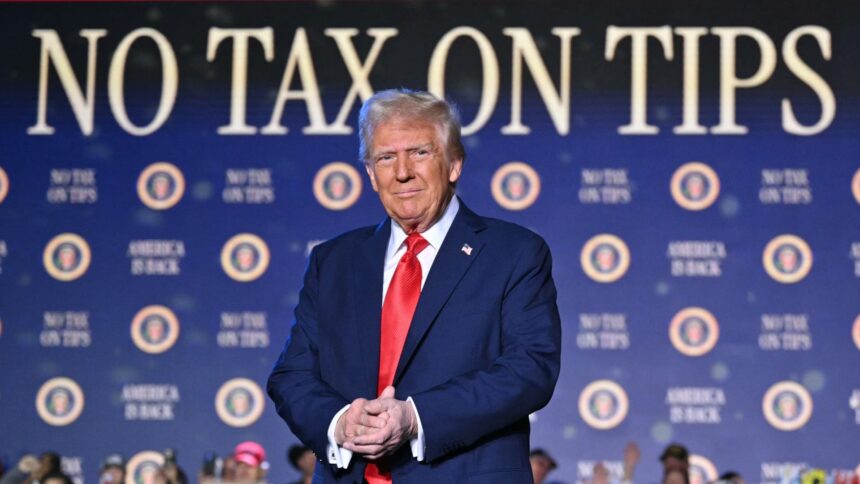In a recent address in Las Vegas, President Donald Trump unveiled an ambitious plan to eliminate taxes on tips, promising significant financial relief for specific workers across several sectors. The initiative aims to redefine the tax landscape for those in occupations that “customarily and regularly receive tips,” with the Treasury Department releasing a preliminary list of 68 qualifying professions.
Among the workers who stand to benefit are those in the beverage and food service industries, including bartenders, wait staff, food servers, chefs, and even dishwashers. The entertainment sector is also represented, with gambling dealers, musicians, and digital content creators among those expected to see tax deductions.
Hospitality and guest services will see inclusivity for roles such as baggage porters, concierges, and housekeeping cleaners. The provision extends to home service workers, including electricians and plumbers, as well as personal services like skincare specialists and exercise trainers. Transportation and delivery roles are featured as well, including taxi and rideshare drivers.
The proposed tax relief allows eligible workers to deduct up to $25,000 from their taxable income, a move that could significantly lower tax burdens for many individuals who rely on tips for their earnings. However, this deduction is set to phase out for those with modified adjusted gross income exceeding $150,000. Importantly, even without itemizing deductions, workers may still take advantage of this benefit.
Despite the favorable changes, experts caution that workers should remain aware of potential state taxes on tip income, as well as payroll taxes owed to Medicare and Social Security. The initiative describes “qualifying tips” as funds voluntarily given by customers, whether in cash or via credit card, encompassing a broad range of payment methods.
As the proposal unfolds, it aims to acknowledge and provide financial support to a multitude of essential workers who contribute significantly to the service and hospitality sectors, promising a transformative change in how tips are taxed in the United States.







